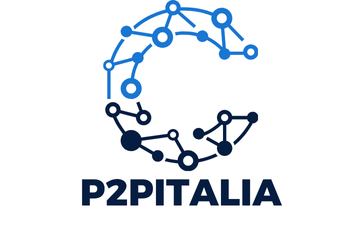Fraud detection is evolving and AI holds the key to this transformation. UK businesses are tapping into advanced technologies that analyze vast amounts of data, identifying patterns and anomalies far quicker than traditional methods. This shift not only enhances security but also boosts operational efficiency. Explore how AI is reshaping fraud detection, allowing businesses to stay ahead of malicious activities while fostering trust within their networks. Embrace the future of fraud prevention and discover the strategic advantages AI offers.
Overview of AI Technologies in Fraud Detection
In the realm of fraud detection systems, AI technologies have revolutionised the way organisations identify and mitigate fraudulent activities. At the forefront of these technologies are machine learning algorithms, which are capable of analysing vast datasets to detect anomalies and predict fraudulent behaviour. These algorithms learn from historical data, enhancing their accuracy over time and adapting to new types of fraud.
Predictive analytics plays a crucial role in identifying fraudulent patterns by using statistical models and data mining techniques. This approach enables organisations to forecast potential fraud before it occurs, thereby reducing financial losses and enhancing security measures. By analysing past transactions, predictive analytics can reveal trends and patterns that human analysts might miss, providing a proactive approach to fraud prevention.
Furthermore, natural language processing (NLP) is increasingly used to analyse unstructured data, such as emails and social media interactions, to detect fraud. NLP techniques can identify suspicious language patterns or sentiments that might indicate fraudulent intentions. By converting textual data into a format that can be analysed, NLP allows for a deeper understanding of the context and nuances of communication, offering an additional layer of insight into potential fraud scenarios.
Have you seen this : Unlocking the Future of UK Farming: The Role of AI in Precision Agriculture Enhancement
Together, these AI technologies form a robust defence against fraud, equipping organisations with the tools needed to stay ahead of increasingly sophisticated fraudulent schemes.
Case Studies of Successful AI Implementation in UK Businesses
In the dynamic landscape of fraud prevention, several UK businesses have emerged as pioneers through effective AI implementation. One notable case is a prominent UK retail company that has harnessed AI to combat fraud. By integrating machine learning algorithms into their system, this retailer can swiftly identify suspicious transactions, significantly reducing financial losses. The system continuously learns from new data, adapting to evolving fraud tactics and enhancing its precision over time.
Another compelling example is a financial institution that has achieved remarkable success with AI-driven fraud detection. This institution implemented predictive analytics to scrutinise transaction patterns, enabling early detection of anomalies. As a result, they have not only mitigated potential fraud but also fortified customer trust by ensuring secure financial operations. The use of AI has allowed them to process vast amounts of data efficiently, offering a robust defence against fraud.
Additionally, insights can be drawn from a tech startup that has developed an innovative AI solution for fraud prevention. This startup's approach focuses on real-time analysis of unstructured data, such as customer communications, to detect fraudulent intentions. Their cutting-edge natural language processing techniques have provided businesses with deeper insights into potential fraud scenarios, setting a new standard in fraud prevention technology.
Benefits of AI-Driven Fraud Detection
In the evolving landscape of fraud prevention, leveraging AI fraud detection offers numerous advantages, particularly in terms of efficiency and accuracy. By automating the analysis of vast datasets, AI significantly enhances the speed at which fraudulent activities are detected and prevented. This efficiency allows organisations to respond to threats in real-time, minimising potential losses and safeguarding assets.
AI systems are adept at distinguishing between legitimate and fraudulent transactions with remarkable accuracy. Traditional methods often rely on predefined rules, which can be easily circumvented by sophisticated fraudsters. In contrast, AI-driven solutions continuously learn from new data, adapting to emerging fraud patterns and improving their precision over time. This adaptability ensures that AI systems remain effective even as fraud tactics evolve.
Moreover, the cost-effectiveness of AI solutions is a compelling benefit for businesses. While initial implementation may require investment, the long-term savings are substantial. AI reduces the need for extensive manual oversight and decreases the likelihood of financial losses due to undetected fraud. By streamlining fraud detection processes, organisations can allocate resources more efficiently, ultimately achieving a higher return on investment.
In summary, AI-driven fraud detection offers a robust, adaptable, and economically viable solution for modern businesses striving to combat fraud.
Challenges in Implementing AI for Fraud Detection
Implementing AI solutions for fraud detection presents several significant challenges. A primary concern is ensuring data privacy and compliance with UK regulations. Organisations must navigate complex legal frameworks to protect customer information while leveraging AI technologies. Compliance with regulations such as GDPR is crucial, requiring businesses to implement robust measures to safeguard personal data and maintain transparency.
Another challenge lies in overcoming technology barriers. Integrating AI systems into existing infrastructures can be complex and costly. Businesses may face difficulties in ensuring compatibility between new AI tools and legacy systems. Additionally, the rapid evolution of AI technologies necessitates continuous updates and maintenance, which can be resource-intensive.
Moreover, the successful implementation of AI for fraud detection requires skilled personnel. There is a growing demand for professionals who can manage and optimise AI systems effectively. These experts must possess a deep understanding of both AI technologies and the specific fraud detection needs of the organisation. Investing in training and development is essential to build a workforce capable of harnessing AI's full potential.
In summary, addressing data privacy, overcoming technological barriers, and cultivating skilled personnel are crucial for businesses aiming to implement AI solutions for fraud detection effectively.
Practical Tips for Integrating AI Solutions
Integrating AI solutions into existing fraud detection frameworks requires careful planning and adherence to best practices. Here’s a step-by-step guide to streamline the process:
-
Assessment and Planning: Begin by evaluating your current fraud detection systems to identify areas where AI can add value. Understanding the specific needs of your organisation will guide the selection of appropriate AI technologies.
-
Data Preparation: Ensure your data is clean, well-organised, and compliant with UK regulations such as GDPR. Proper data handling is crucial to maintain privacy and security.
-
Technology Integration: Choose AI solutions that are compatible with your existing infrastructure. This may involve updating legacy systems to support new technologies.
-
Pilot Testing: Implement AI in a controlled environment to test its effectiveness. Monitor performance closely and make necessary adjustments before full deployment.
-
Staff Training: Invest in training for your team to manage and optimise AI systems effectively. Skilled personnel are essential for successful integration.
-
Continuous Improvement: Regularly evaluate AI systems to ensure they adapt to new fraud patterns. Stay updated with technological advancements and adjust your strategies accordingly.
By following these integration tips, organisations can enhance their fraud detection capabilities while ensuring compliance with UK financial regulations.











